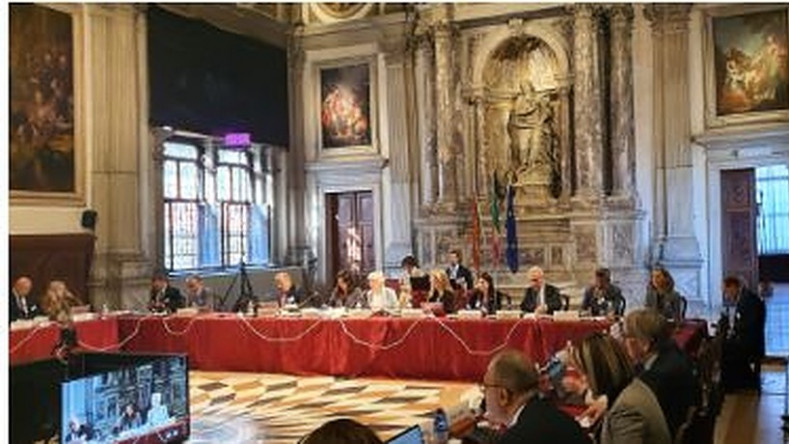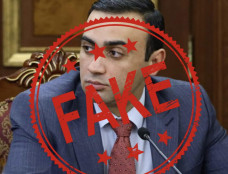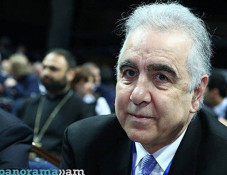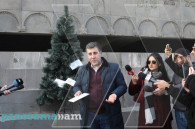
Venice Commission publishes opinion on draft amendments to Armenia's Electoral Code
The Council of Europe’s body of constitutional law experts, the Venice Commission (European Commission for Democracy through Law) has published several opinions concerning ten states, including Armenia, that were adopted and endorsed at its latest plenary session.
Earlier on 12 July, Armenia's Justice Minister Grigor Minasyan requested an opinion by the Venice Commission on draft amendments to the Electoral Code and related legislation.
The Venice Commission and the OSCE/ODIHR say in their joint opinion that the reform package proposes amendments to the Electoral Code and to 17 other legal acts. These different amendments are closely interrelated and are therefore reviewed together. The claim the current package of amendments is "very long, detailed, and hard to navigate".
"The Venice Commission and ODIHR welcome that the reform process has been marked by broad consultations and public discussions. On the other hand, the frequency of amendments to the electoral legislation of Armenia in recent years is striking. Further amendments would be necessary as not all previous recommendations have been addressed. The Venice Commission and ODIHR acknowledge the aim to eliminate at least some of the features of the previous electoral framework ahead of the next election but regret that this opportunity was not used to address the outstanding recommendations from ODIHR and the Venice Commission. This is particularly important as international good practice highlights the importance of the stability of electoral legislation and the impact that frequent changes can have on public trust. Frequent amendments furthermore risk confusing voters, parties and candidates, and making it difficult for the competent electoral authorities to apply the law, which may lead to mistakes in the electoral process and, as a consequence, distrust in the elected bodies. A more comprehensive reform could prevent such risks and provide the opportunity for a more structured and clear process," the opinion says.
The Venice Commission and ODIHR regret that a number of their previous recommendations have not yet been followed and remain valid, including several key recommendations of the most recent Joint Urgent Opinion of 2021.
In addition to their previous, pending recommendations, the Venice Commission and ODIHR make the following key recommendations:
A. Further amending the provisions on elections during emergencies (draft Article 7.1 of the Electoral Code), namely: 1) prioritising the temporary halt of the electoral process (its suspension) over its complete termination; fully terminating the electoral process should only be considered as an ultimate option when no other less drastic alternatives are available or when the suspension exceeds a set period of time; 2) avoiding the suspension of elections after voters have already cast their votes; [paragraph 27]
B. Reconsidering the current and new draft provisions of Article 13 of the Electoral Code in the light of international standards and best practice on personal data protection; the publication of the list of the voters who actually participated in the elections should be avoided, and regarding the publication of voter lists before elections, other solutions which protect the personal data in a better way should be considered; [paragraph 39]
C. Making it clear in the law that de-registration of candidates and party lists is allowed only as an exceptional measure for the most serious, clearly described, violations of campaign finance regulations; [paragraph 51]
D. Reconsidering the proposed architecture of political finance oversight split between two different bodies (the Oversight and Audit Service and the Commission for the Prevention of Corruption); in case the currently proposed solution is nevertheless maintained, a clear delineation of responsibilities between the two bodies should be introduced. In any case, the monitoring mechanism must be provided with sufficient tools and resources, including an appropriate number of staff specialised in financial auditing, as well as a clear mandate and obligation to audit financial reports of political parties and electoral contestants, to verify the accuracy of the information submitted, and to initiate investigations of possible irregularities.
Newsfeed
Videos






























